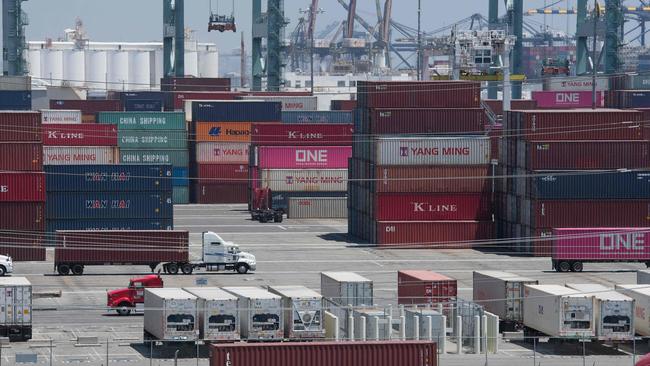Ice trafficker Jared Brown denied extension of time to appeal decades long prison sentence
A convicted Melbourne drug trafficker who tried to import almost 50kg of ice hidden in car engines into Australia for a Mexican drug cartel has lost his second bid for more time to appeal his 20-year jail term.

East
Don't miss out on the headlines from East . Followed categories will be added to My News.
A Melbourne man serving 20 years’ prison after he was caught importing more than 60 times the trafficable quantity of the drug ice has lost his latest bid for an appeal.
Jared Brown, of Richmond, was initially sentenced to 12 years’ jail in April 2016 after he was convicted on two charges of importing a combined total of 49kg of methamphetamine hidden in two shipments of car engines from California in 2013.
His jail time was increased to 20 years with a non-parole period of 15 years following an appeal by the Commonwealth Director of Public Prosecutions for a harsher sentence.
Last month, the Court of Appeal knocked back his second application for an extension of time to appeal his sentence, with Judges Phillip Priest and Simon Whelan finding there was no reason to question the actions of the previous trial judge.
They also threw out Brown’s arguments that his own defence counsel was incompetent and that the evidence presented to the jury during his trial didn’t support a conviction.
The court heard Brown was engaged by a Mexican drug cartel to receive, store and deliver the drugs to their contact in Australia, with the first handover successfully completed at Chadstone shopping centre’s carpark in April 2013.
A second much larger shipment of drugs was detected three months later by Australian Federal Police, who intercepted the suspect engines and substituted the ice inside them for salt before tracking the shipment to Brown and his co-accused.
MORE: HOW VIRUS CRISIS IS GIVING MELBOURNE CHEAP FUEL
CLOTHES-PINCHING SEX STALKER FEARS HE CAN’T STOP
MELBOURNE’S NASTIEST DRUG DEALERS TO GO DOWN IN 2019
A jury previously rejected Brown’s defence that he only agreed to help import ice to Australia because of threats of violence he’d received against his Mexican girlfriend and his family.
And the Court of Appeal judges said the trial evidence substantiated a guilty verdict to both trafficking charges.
“In our opinion, once the jury rejected the notion that the applicant acted under duress, his conviction was inevitable,” the appeal judges said.
“In particular, the WhatsApp communications passing between (the cartel) and the applicant … seem to demonstrate a congenial and friendly relationship between the two rather than one characterised by menace or threats.”
